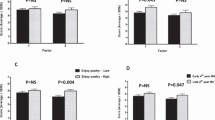Abstract
Medical ethics is a practical key element in the medical curriculum. Movies can be used as an effective and innovative way to involve students in discussions and reflections on ethical issues. This study aimed to evaluate the appropriateness of medical movies as a tool in medical ethics education. During the last teaching session of the medical ethics courses, the movie “Extreme Measures” was shown to the medical students. The present study is a descriptive-analytical study of 302 students’ manuscripts. The quantitative content analysis of the students’ manuscripts was carried out using a checklist that contained 11 titles and 75 subtitles. Each student’s checklist was compared to the student’s final exam score. The most recognized issue was justice (98%), and the least recognized one was confidentiality and privacy (8%). Nonmaleficence, respecting autonomy and informed consent, honor and integrity, end of life, duty and responsibility, conflict of interest, beneficence, relationship with colleagues and altruism were located in-between. There was a relationship between students’ final exam scores and their manuscripts’ scores. According to our findings, relevant movies with standard categorization can be used as a useful method for medical ethics education and assessment.
Similar content being viewed by others
References
Aleksandrova-Yankulovska, Silviya. 2014. An innovative approach to teaching bioethics in management of healthcare. Nursing Ethics 23 (2): 167–175. https://doi.org/10.1177/0969733014558967.
Bagheri A. 2011. Iranian medical ethics priorities: the results of a national study. International Journal of Multicultural Education. 4 (5): 39–48.
Zare Bidaki, Majid, Masoud Yousefi, Hakimeh Malaki Moghadam, Ali Rajabpour Sanati, and Ali Nazari-Alam. 2018. "The effectiveness of clip-based education on academic learning and satisfaction in microbiology course of health students." Journal of Birjand University of Medical Sciences 25 (0):37–45.
Blasco, Pablo G., Cauê F. Mônaco, Maria Auxiliadora C. De Benedetto, Graziela Moreto, and Marcelo R. Levites. 2010. Teaching through movies in a multicultural scenario: Overcoming cultural barriers through emotions and reflection. Family Medicine 42 (1): 22–24.
Blasco, Pablo Gonzalez, Graziela Moreto, Mariluz González Blasco, Marcelo Rozenfeld Levites, and Marco Aurelio Janaudis. 2015. Education through movies: Improving teaching skills and fostering reflection among students and teachers. Journal for Learning Through the Arts 11 (1): n1.
Champoux, Joseph E. 1999. Film as a teaching resource. Journal of Management Inquiry 8 (2): 206–217.
Chen, Wenting, and Haihong Qian. 2017. Using films and television shows with a medical theme as a medium to accelerate the spread of medical humanities. Bioscience Trends 11 (2): 138–141. https://doi.org/10.5582/bst.2017.01099.
Johnston, Carolyn, and Mark Chan. 2012. Making film vignettes to teach medical ethics. Medical Education 46 (11): 1133–1134.
Kabadayi, Lale. 2012. The role of short film in education. Procedia - Social and Behavioral Sciences 47: 316–320. https://doi.org/10.1016/j.sbspro.2012.06.657.
Kadivar, Maliheh, Mahboobeh Khabaz Mafinejad, Javad Tavakkoly Bazzaz, Azim Mirzazadeh, and Zeinab Jannat. 2018. Cinemedicine: Using movies to improve students' understanding of psychosocial aspects of medicine. Annals of Medicine and Surgery 28: 23–27. https://doi.org/10.1016/j.amsu.2018.02.005.
Karimi-Moneghi, H., A. Drakhshan, N. Valaei, and F. Mortazavi. 2003. The effect of video-based instruction versus demonstration on learning of clinical skills. Journal of Gorgan University of Medical Sciences 5 (2): 77–82.
Klemenc-Ketis, Zalika, and Janko Kersnik. 2011. Using movies to teach professionalism to medical students. BMC Medical Education 11 (1): 60. https://doi.org/10.1186/1472-6920-11-60.
Koohestani, Hamid Reza, Nayereh Baghcheghi, Mahmood Karimy, Morteza Hemmat, and Morteza Shamsizadeh. 2019. Lived experiences of nursing students about ethical concerns regarding mobile learning in educational and clinical contexts. Journal of Medical Ethics and History of Medicine 12 (5).
Koole, Sebastiaan, Tim Dornan, Leen Aper, Bram De Wever, Albert Scherpbier, Martin Valcke, Janke Cohen-Schotanus, and Anselme Derese. 2012. Using video-cases to assess student reflection: Development and validation of an instrument. BMC Medical Education 12 (1): 22. https://doi.org/10.1186/1472-6920-12-22.
McQueen, Sydney, Victoria McKinnon, Laura VanderBeek, Colm McCarthy, and Ranil Sonnadara. 2019. Video-based assessment in surgical education: A scoping review. Journal of Surgical Education 76 (6): 1645–1654. https://doi.org/10.1016/j.jsurg.2019.05.013.
Ortiz, M Belén Alonso. 2018. Commercial Cinema as a learning tool in medical education, from potential medical students to seniors. MedEdPublish no. 7.
Acknowledgements
This study is part of an MSC thesis in medical education at the School of Medical Education, Shahid Beheshti University of Medical Sciences. We hereby wish to thank all collaborators, especially Ms. Maliheh Ghorbani of Qum University of Medical Sciences.
Author information
Authors and Affiliations
Corresponding author
Ethics declarations
Conflict of interest
The second (and the corresponding) author was the teacher of participant students.
Additional information
Publisher’s note
Springer Nature remains neutral with regard to jurisdictional claims in published maps and institutional affiliations.
Rights and permissions
About this article
Cite this article
Bagheri, S., Rezaei Adaryani, M. & Afshar, L. Assessment of medical students’ achievement of Najaf Abad Islamic Azad University educational objectives of medical ethics course using manuscript of them from “Extreme Measures” film. International Journal of Ethics Education 6, 77–86 (2021). https://doi.org/10.1007/s40889-020-00109-9
Accepted:
Published:
Issue Date:
DOI: https://doi.org/10.1007/s40889-020-00109-9



